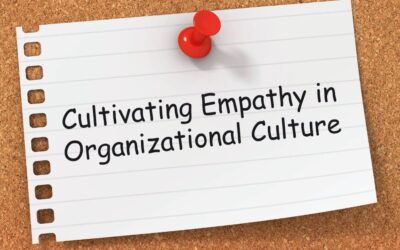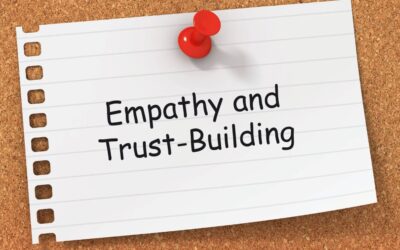Emotional resilience is the ability to adapt and bounce back from challenging situations. It involves maintaining a positive mindset, managing stress, and effectively coping with setbacks. Empathy plays a vital role in developing emotional resilience by fostering understanding, compassion, and connection with others. In this lesson, we will explore how empathy can be utilized as a tool for building emotional resilience and navigating difficult circumstances with grace.
Developing empathy as a tool for building emotional resilience involves the following aspects:
- Understanding Others’ Perspectives: Empathy requires us to step into the shoes of others and view the world from their perspective. By seeking to understand the emotions, experiences, and challenges they face, we develop a deeper sense of empathy and build emotional resilience by broadening our own perspective.
- Building Connections: Empathy fosters connections and strengthens relationships. When we connect with others on an emotional level, we create a support system that contributes to our emotional resilience. These connections provide us with a sense of belonging, support, and understanding during challenging times.
- Practicing Self-Compassion: Developing empathy towards ourselves is crucial for building emotional resilience. Self-compassion involves acknowledging and accepting our own emotions, being kind to ourselves, and treating ourselves with understanding and care. By cultivating self-compassion, we enhance our ability to navigate difficult situations and bounce back from setbacks.
- Enhancing Communication: Empathy improves our communication skills, allowing us to effectively express our emotions and needs, as well as understand those of others. Effective communication promotes understanding, reduces misunderstandings, and facilitates healthy relationships, all of which contribute to emotional resilience.
Benefits:
Utilizing empathy as a tool for building emotional resilience offers several benefits:
- Greater Understanding: Developing empathy allows us to gain a deeper understanding of others’ experiences and emotions. This understanding promotes compassion, reduces judgment, and enhances our ability to navigate challenging situations with empathy and grace.
- Strengthened Relationships: Empathy strengthens relationships by fostering trust, connection, and mutual support. Strong relationships provide a network of emotional support that contributes to emotional resilience during difficult times.
- Enhanced Problem-Solving: Empathy enables us to approach problem-solving with a collaborative and understanding mindset. By considering different perspectives and actively listening to others, we can find creative and effective solutions to challenges, enhancing our emotional resilience.
- Improved Self-Awareness: Developing empathy involves self-reflection and introspection, leading to increased self-awareness. Self-awareness allows us to recognize our own emotions, triggers, and strengths, empowering us to navigate challenging situations with resilience and self-care.
Strategic Ways to Develop Empathy for Building Emotional Resilience:
- Practice Active Listening: Engage in active listening by giving your full attention to others, suspending judgment, and reflecting their emotions and thoughts. Active listening promotes understanding, strengthens connections, and develops empathy.
- Engage in Perspective-Taking: Make an effort to understand others’ perspectives by imagining yourself in their situation. This practice broadens your empathy and helps you develop a more compassionate and resilient mindset.
- Cultivate Self-Compassion: Treat yourself with kindness and understanding. Practice self-care, acknowledge your emotions, and be compassionate towards yourself during challenging times. Developing self-compassion contributes to emotional resilience.
- Seek Diverse Experiences: Engage in activities that expose you to diverse perspectives and experiences. This broadens your understanding of others’ emotions and challenges, enhancing your empathy and emotional resilience.
- Practice Mindfulness: Cultivate mindfulness to stay present and attuned to your own emotions and the emotions of others. Mindfulness enhances empathy, reduces stress, and promotes emotional resilience.
Conclusion:
Empathy serves as a powerful tool for building emotional resilience. By developing empathy, we foster understanding, strengthen connections, and navigate challenging situations with grace. The benefits of utilizing empathy include greater understanding, strengthened relationships, improved problem-solving, and enhanced self-awareness. By implementing strategic practices such as active listening, perspective-taking, self-compassion, seeking diverse experiences, and practicing mindfulness, we can cultivate empathy and build emotional resilience.
FAQs:
Can empathy help us bounce back from setbacks?
Yes, empathy plays a significant role in building emotional resilience. By understanding and connecting with others’ experiences and emotions, empathy allows us to gain new perspectives, find support, and navigate setbacks with resilience.
Can empathy be developed and improved?
Absolutely, empathy is a skill that can be developed and strengthened with practice. Engaging in activities that promote perspective-taking, active listening, and self-reflection can enhance empathy and contribute to building emotional resilience.
How does empathy contribute to building stronger relationships?
Empathy fosters understanding, trust, and connection, which are essential elements of strong relationships. By practicing empathy, we create an environment of support, compassion, and mutual understanding, strengthening the bonds with others.
Is self-compassion an important aspect of building emotional resilience?
Yes, self-compassion is vital for building emotional resilience. It involves acknowledging and treating ourselves with kindness during difficult times. Self-compassion helps us bounce back from setbacks, practice self-care, and develop a more resilient mindset.
Can empathy be applied in professional settings to build emotional resilience?
Absolutely, empathy is valuable in professional settings as well. By understanding and connecting with colleagues’ emotions and experiences, we foster a supportive work environment, build stronger teams, and enhance emotional resilience in the workplace.













